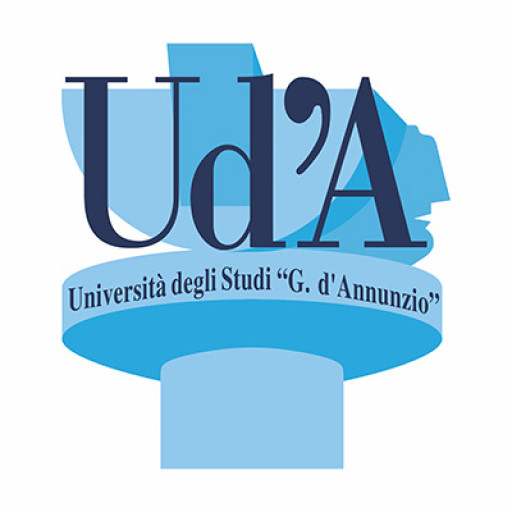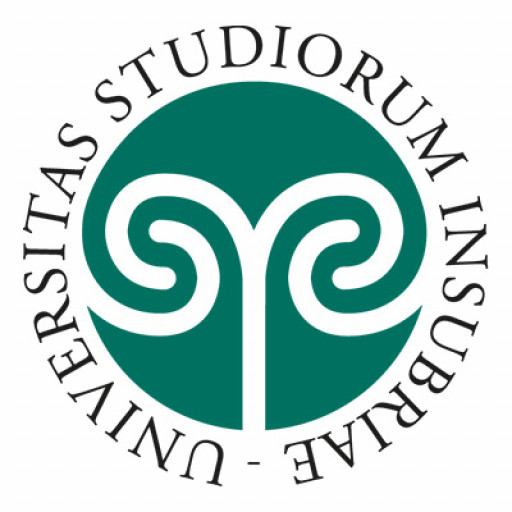Photos of university / #edinburghuniversity
The Bachelor of Medical Sciences (Honours) program at the University of Edinburgh offers a comprehensive and in-depth exploration of the fundamental principles underlying human health and disease. Designed for students who are passionate about pursuit of a career in medical research, healthcare, or related fields, this program provides a solid foundation in biomedical sciences while fostering critical thinking, laboratory skills, and scientific communication. Throughout the course, students engage with a diverse range of topics including anatomy, physiology, biochemistry, pharmacology, pathology, microbiology, and neuroscience, enabling them to develop a holistic understanding of the human body and its complex systems. The program emphasizes both theoretical knowledge and practical laboratory experience, preparing graduates for further postgraduate study or careers in medical research, healthcare analysis, or biomedical industries. Students have opportunities to participate in research projects, attend seminars, and collaborate with experts in the field, enhancing their learning and professional development. The curriculum is designed to be flexible, allowing students to tailor their studies according to their interests across different biomedical disciplines. With state-of-the-art facilities and a supportive learning environment, the University of Edinburgh equips students with the skills necessary to contribute meaningfully to advances in medical science. Graduates of this program are well-positioned to pursue postgraduate degrees, including Medicine, Dentistry, Veterinary Medicine, or PhD research, or to enter the biomedical workforce. The program emphasizes the importance of ethical considerations, patient-centered care, and the societal impact of medical research, preparing students to become responsible professionals dedicated to improving health outcomes worldwide. The Bachelor of Medical Sciences (Honours) at Edinburgh is an ideal choice for aspiring scientists and healthcare professionals committed to understanding and advancing medical science for better human health.
Year 1
You will take three compulsory courses: Medical Sciences 1; Medical Biology 1; and Molecules, Genes & Cells 1.
You will choose other courses from a range of biomedical and non-biomedical courses. Medical Sciences 1 defines the unique identity of the programme, introducing the breadth of disciplines that integrate to contribute to our understanding of health and disease.
Students will also be expected to take at least one course in biological chemistry.
Year 2
You will expand your knowledge in basic biomedical sciences and further develop an integrated approach to understanding the science that underpins medical practice.
You will take three compulsory courses: Anatomy & Pathology 2; Biomedical Sciences 2; and Microorganisms, Infection & Immunity 2 alongside additional courses chosen from biomedical, biological or other disciplines across the University.
Anatomy and Pathology 2 is a programme-specific course that that introduces an integrated approach to the structure and function of the human body at different levels of organisation and develops key programme-specific healthcare themes.
Year 3
You will develop expert specialised knowledge in medical sciences that enables you to understand current research and to discuss critically its significance and implications.
You will develop key skills in critical analysis, research and communication alongside increasing biomedical knowledge. You will study three compulsory courses: Health, Illness & Society 3; Clinical Biochemistry & Endocrinology 3; and Clinical Immunology & Haematology 3A plus three option courses.
The compulsory courses explore further the links between basic research and the clinical situation. Health, Illness & Society 3 is unique to this programme and provides an important focus on developing awareness of healthcare-specific professional and ethical relationships covering aspects of social medicine from the understanding of disease at a population level to the global allocation and use of healthcare resources.
Year 4
You will have opportunities to actively engage in research, discuss and analyse high-profile issues, and reflect on and re-evaluate themes addressed in earlier years.
You will study the compulsory course Medical Sciences 4 alongside two option courses that allow analysis of high-profile contemporary issues in medical sciences.
With individual tutor support, you will complete a major research project that involves either original laboratory-based medical research, clinically-related research or library-based literature research.
Year 1, Academic year 2016/17, Starting month: September
COMPULSORY COURSES This DPT has 3 compulsory course(s).
COURSE OPTIONS This DPT has 3 set(s) of course options with the following rules. Overarching rule collection group: A Select exactly 60 credits from these collections: Select exactly 20 credits from the following list of courses, during Semester 1
Notes:Exceptionally, in discussion with your Personal Tutor, the courses Introductory Chemistry for Biologists and Biological Chemistry 1A may be replaced by any other course chosen from Schedules A-Q/T and W. AND
Overarching rule collection group: B Select exactly 20 credits from these collections:
|
Year 2, Academic year 2016/17, Starting month: August
COMPULSORY COURSES This DPT has 3 compulsory course(s).
COURSE OPTIONS This DPT has 2 set(s) of course options with the following rules. Overarching rule collection group: A Select exactly 40 credits from these collections:
AND Select exactly 20 credits from Level 7 and 8 courses in Schedules A to Q, T and W, during Semester 2 |
Year 3, Academic year 2016/17, Starting month: August
This DPT has 3 compulsory course(s).
COURSE OPTIONS This DPT has 2 set(s) of course options with the following rules. Overarching rule collection group: A Select exactly 60 credits from these collections:
Select a minimum of 0 credits and maximum of 40 credits from Level 9 and 10 courses in Schedules A to Q, T and W, as available |
Year 4, Academic year 2016/17, Starting month: August
COMPULSORY COURSES This DPT has 4 compulsory course(s).
COURSE OPTIONS This DPT has 2 set(s) of course options with the following rules. Overarching rule collection group: A Select exactly 40 credits from these collections: Select a minimum of 20 credits and maximum of 40 credits from the following list of courses, during Semester 1
Notes:These courses make up List 1 and are STRONGLY recommended for this programme. AND
|
- Attestat plus completion of a recognised foundation programme Or At least one year of the Bakalavr or Specialist degree with an average grade of 'good' (4.0/5.0)
- IELTS Academic module overall 6.5 with 5.5 in each component
- TOEFL-iBT 92 or above with 20 in each section
- Cambridge English: Advanced & Proficiency overall 176 with 162 in each component
- Pearson Test of English (Academic): Total 61 with at least 51 in each "Communicative Skills" section
- Trinity ISE: ISE II with a distinction in all four components
Funding for the Medical Sciences program at The University of Edinburgh is available through various sources to support both domestic and international students. Prospective students are encouraged to explore multiple funding options to finance their studies effectively. The university offers a range of scholarships and bursaries specific to Medical Sciences students, including the Edinburgh Global Health Academy scholarships, which are awarded based on academic achievement and financial need. Additionally, the university participates in national funding schemes such as the UK Research and Innovation (UKRI) scholarships, which provide funding for eligible students pursuing postgraduate degrees. Students may also explore external funding opportunities, including government-sponsored loans and grants provided by their home countries, as well as private sector scholarships and charitable trusts that support medical and health-related studies.
For undergraduate students, there are government-funded tuition fee waivers and maintenance grants for eligible UK residents, alongside bursaries that help cover living expenses. International students can apply for different scholarships dedicated to overseas applicants, which often cover partial tuition fees or provide stipends to assist with living costs. The university’s financial aid office provides comprehensive guidance on available funding, deadlines, application procedures, and eligibility criteria. Students are advised to consult the official university website and contact the university’s financial support services early to ensure they meet all requirements and submit their applications on time. Furthermore, students are encouraged to seek external funding sources, including health charities and professional associations, which sometimes offer scholarships, awards, and research grants for students in Medical Sciences. The university also provides advice on part-time work opportunities around the academic timetable, which can help students offset living expenses. Ultimately, securing adequate funding involves planning ahead, understanding the eligibility criteria for each funding scheme, and preparing thorough application materials. While the university makes significant resources available, prospective students should actively research and apply for as many relevant funding opportunities as possible to support their academic pursuits in Medical Sciences.
The Medical Sciences program at the University of Edinburgh offers a comprehensive and interdisciplinary approach to understanding the fundamental principles of medicine and health sciences. This program is designed to provide students with a broad foundation in biology, chemistry, and human physiology, enabling them to explore the complex mechanisms underlying health and disease. The curriculum typically combines theoretical knowledge with practical laboratory skills, fostering critical thinking and research abilities essential for careers in healthcare, biomedical research, and academia. Students undertake modules covering areas such as anatomy, biochemistry, pharmacology, neuroscience, and immunology, which are integrated to give a holistic understanding of human biology and medical sciences. The program also emphasizes the importance of ethical considerations in medical research and practice, preparing students to consider societal impacts and ethical dilemmas. Throughout the course, students have opportunities for lab work, research projects, and clinical placements, which enhance their practical skills and professional development. The program is suitable for those wishing to pursue further specializations or postgraduate study in medicine, dentistry, pharmacology, or biomedical sciences. Students benefit from access to state-of-the-art facilities, expert faculty, and collaborations with research institutes and healthcare providers across Edinburgh. The program aims to equip graduates with a solid scientific foundation, critical analytical skills, and an understanding of contemporary issues in medicine and health sciences, making them well-prepared for a wide range of careers in health-related sectors or for further academic pursuits.








